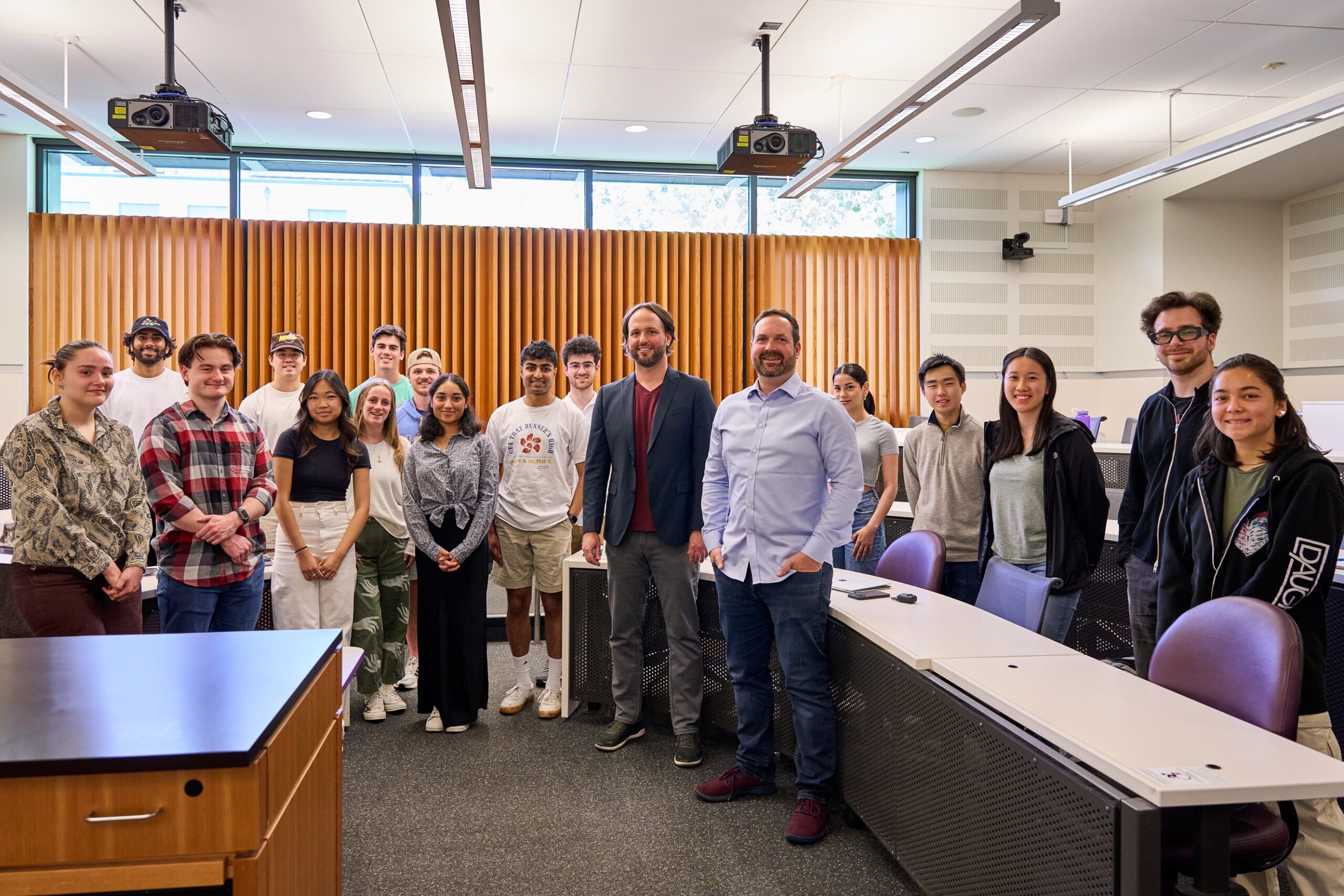
Climate Risk: The Next Critical Business Skillset
Student demand for climate risk and sustainable finance training is growing.
At the University of Washington’s Foster School of Business, Professor Phillip Bruner is teaching a critical business skillset that’s a far cry from the typical business school curriculum of 10 years ago. But Bruner isn’t teaching students about finance, taxation, or marketing.
A sustainable finance expert, Bruner is teaching climate risk.
Teaching climate risk in business school
Student demand for climate risk and sustainable finance training is growing across Foster’s undergraduate and MBA programs. In response, Foster faculty like Bruner are working to equip Foster students with the mindsets and quantitative skills to drive climate solutions in future leadership roles.
“Students are witnessing worsening climate impacts daily and are deeply concerned about resilience and sustainability,” notes Bruner. “No matter which sector they want to enter, whether that’s banking, technology, transportation, healthcare—you name it—they know that sustainable finance skills will be indispensable.”
In every lesson and lecture, Bruner encourages students to think about the wide-ranging impacts of climate change. For example, he challenges students to consider the effect that more frequent and extreme fires, freezes, and/or floods can have on power grids. Those impacts aren’t isolated to utilities but have knock-on effects for commercial and residential end-users that can cause serious and lasting damage.
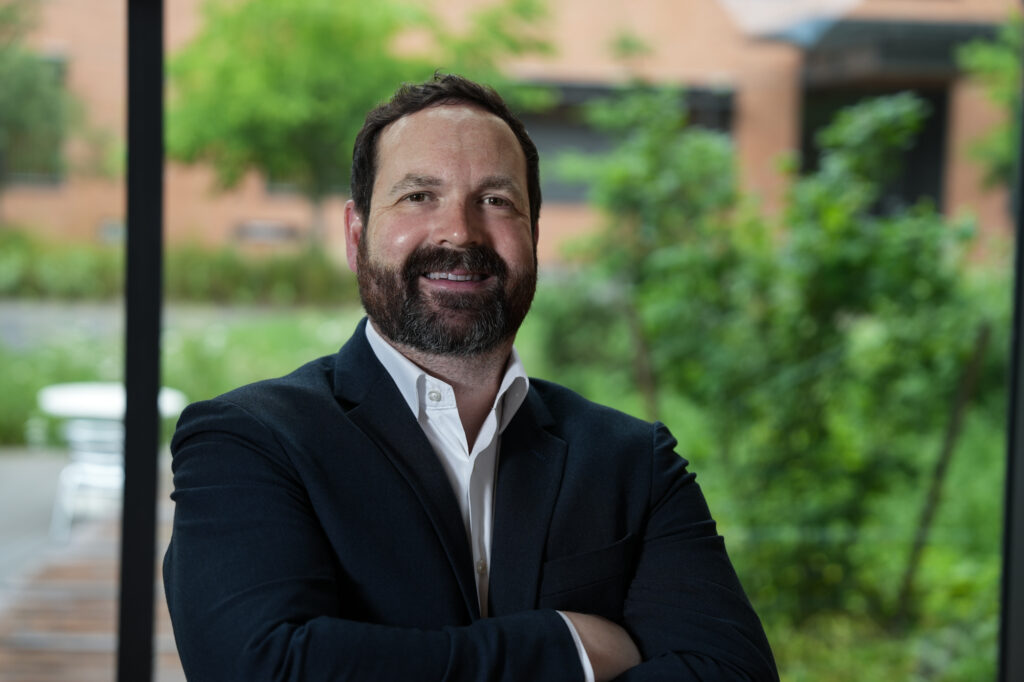
Learning by doing at the Climate Risk Lab
Through his pioneering UW Climate Risk Lab, a cross-campus initiative housed within the Foster School of Business, Bruner is taking an ambitious approach.
The UW Climate Risk Lab is building an open-access mapping toolset to enable researchers, students, and organizations to access data and models to better understand climate-related financial risks across all industries.
“The UW Climate Risk Lab aims to treat this underlying data as a public good and to equip students with the tools they need to become competent climate risk analysts without having to rely on expensive, opaque data and software,” he explains.
Once the open-access project is completed in fall 2024, Bruner’s students will learn how to analyze exposures like supply chain disruptions from disasters, infrastructure vulnerabilities, and shifting insurance market dynamics.
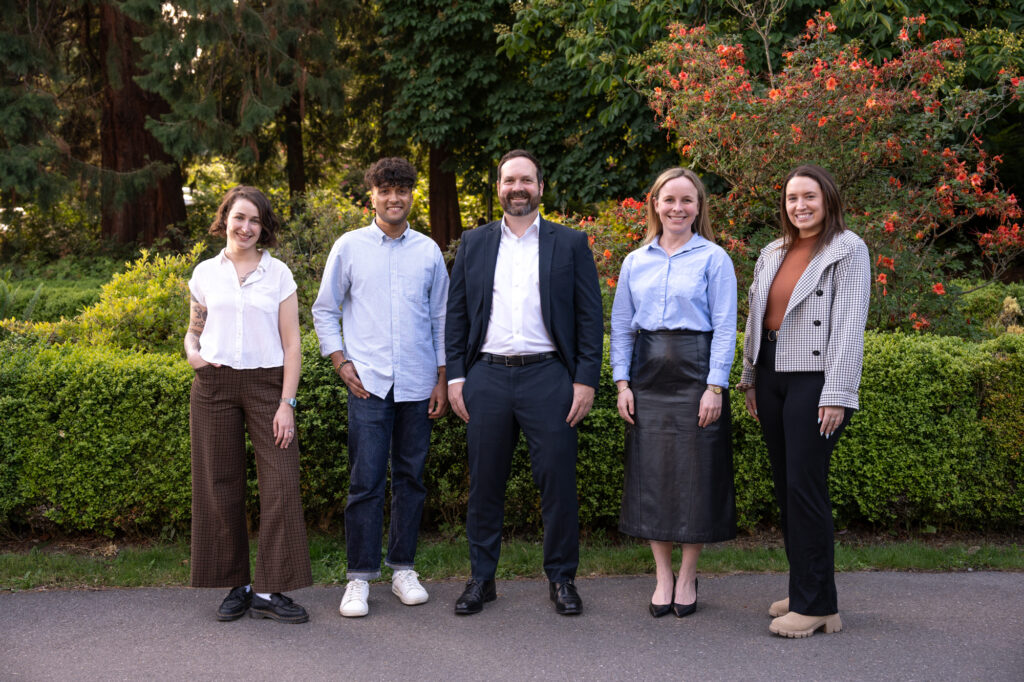
Calculating financial risks
Globally, businesses are starting to grapple with how escalating extreme weather events, and the transition to a low-carbon economy, impact asset valuations and firm performance. There’s a growing need for locally specific climate risk models to price this new reality at the level of assets and supply chains.
Knowing how to identify and manage climate-related financial risks is critical for students as they transition to professional roles. Across industries, a new generation of experts will be tasked with helping businesses adapt to the evolving landscape, ensuring they can continue to offer products and services without facing unsustainable losses.
Pathways to measurement
Climate risk has emerged as a distinct domain in sustainable finance. According to Bruner, organizations ranging from central banks to insurance companies and pension funds are taking a more serious look at how increasingly extreme weather events, plus changing regulations, can have a material effect on asset valuations and firm performance.
“Business leaders, as well as students, must build a better understanding of how climate-related financial risks can complicate decisions on how firms allocate capital,” explains Bruner. “Local exposure to more extreme weather, for example, can have serious material implications for supply chains and labor forces. It’s an aspect of finance students wouldn’t have covered 10 years ago—and it has the potential to sideline even the most secure, stable organization or business.”
By framing climate challenges through a finance lens, Bruner facilitates dialogue between emerging professionals in his classes, guest speakers, and industry leaders. Foster students learn varied considerations from Bruner and experts across sustainable finance, risk management, and the financial sector.
“We invite industry experts into the classroom to create pathways for our students to move into climate risk roles while bringing fresh perspectives to existing business practices,” he notes.
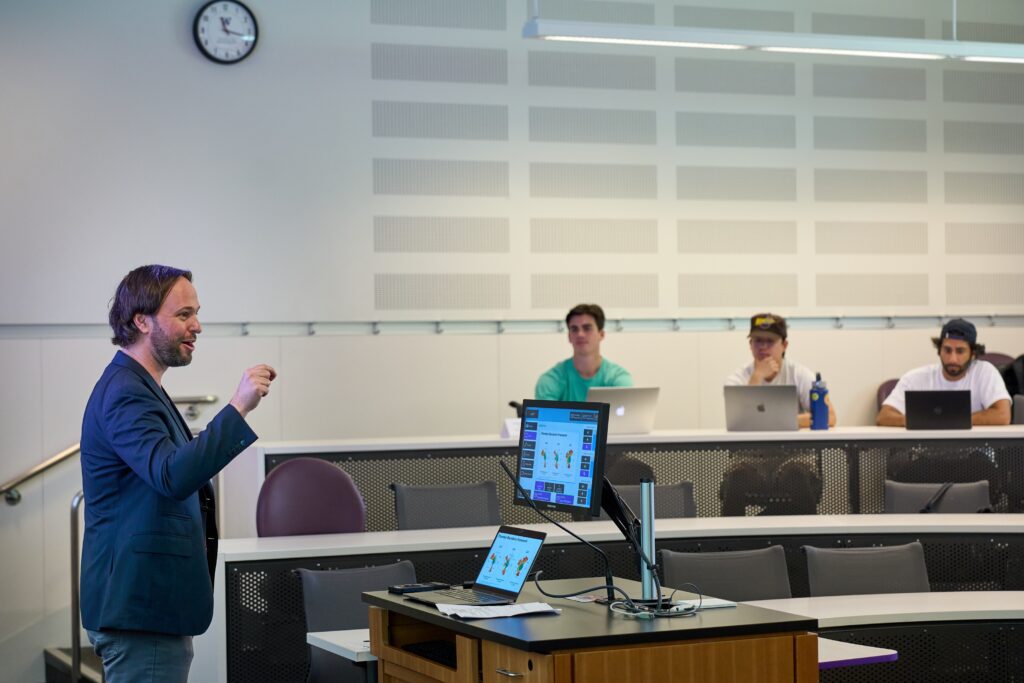
Empowering climate risk analysts and entrepreneurs
“We’re entering an era of compounding crises with extreme weather, biodiversity loss, and other environment shocks,” says Bruner. “Businesses, and business schools, must step up as part of the solution. We need to work together and across disciplines to leverage tools like those we’re developing at the Climate Risk Lab to build resiliency and drive sustainability.”
Bruner’s work with his students prepares them for a growing number of roles that necessitate sustainable finance skills. And by doing hands-on work using a modeling tool, Bruner believes students can develop skills that will be relevant throughout their careers.
“At Foster, we’re not just teaching concepts, but training students to develop innovative climate risk management and mitigation strategies. They will hit the ground running in their professional lives—and I’m confident they will drive positive change,” concludes Bruner.
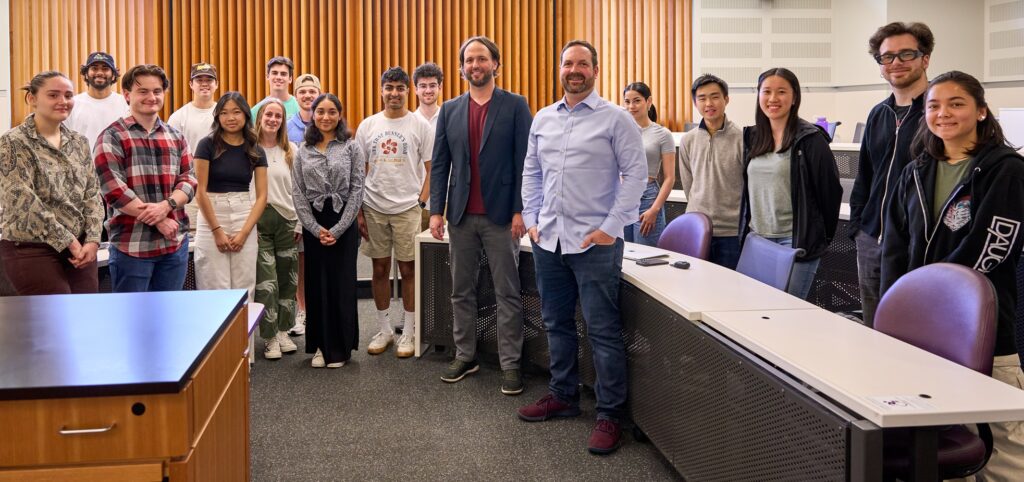
About Phillip Bruner
Phillip Bruner is Professor of Sustainable Finance at the University of Washington Foster School of Business where he also serves as Executive Director of the UW Climate Risk Lab. He is a former renewable energy project developer, investor and climate tech entrepreneur, with over 15 years of experience working at the intersection of renewable energy and digital innovation. He is the former Founder & Rapporteur for the London-based Green Investment Forum, a private dinner club of executives from commercial banking, private equity, asset finance and venture capital working to accelerate capital deployment into renewable energy projects worldwide. His thought leadership has been featured in MIT Sloan, the FT, Reuters and the Johns Hopkins University Series on Sustainable Entrepreneurship, as well as for the IIED and Oxford Sustainable Security Research Group.
